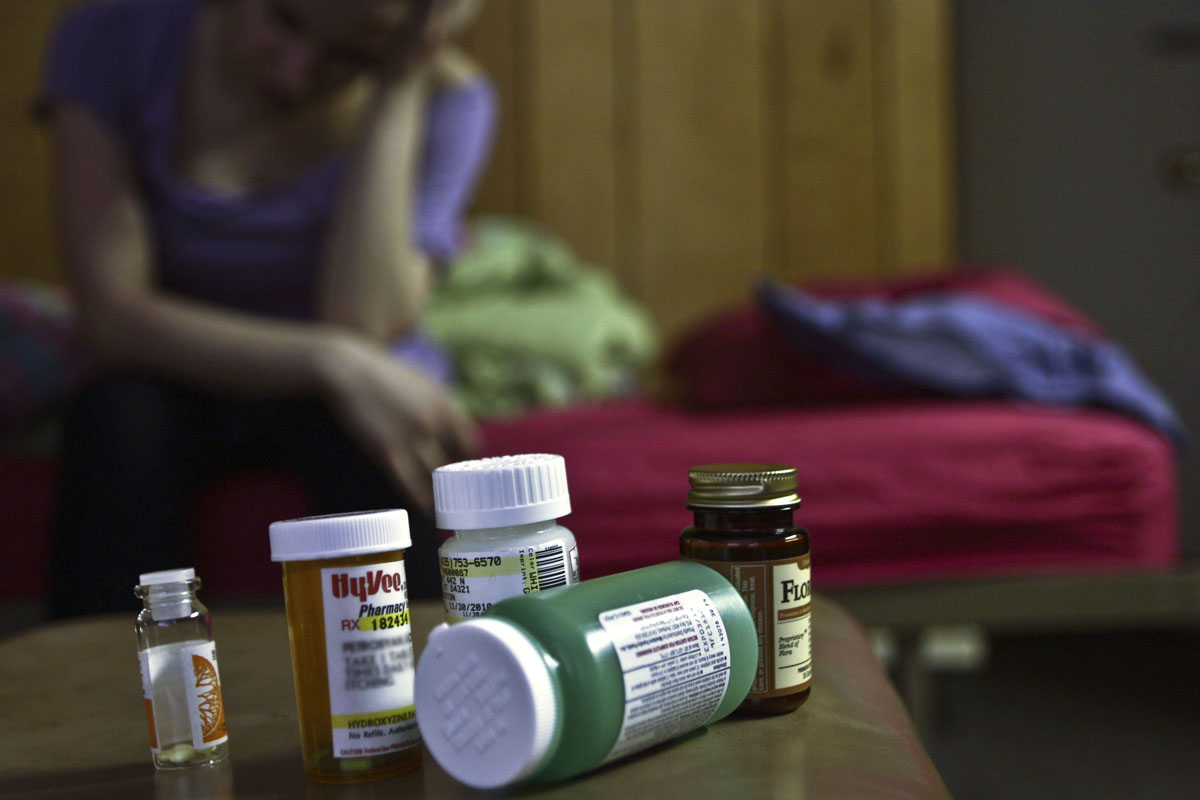Counselors hope to improve USU students’ sleeping habits
Countless students suffer from sleeping problems, and USU’s Counseling and Psychological Services (CAPS) is offering a workshop to help students understand the reasoning behind sleep issues and tips to having a better night’s sleep, said Tom Berry, USU staff psychologist.
Whether it’s not being able to fall asleep, waking up multiple times in the night or waking up early and never being able to fall back asleep, insomnia affects students all year.
“Getting the Most out of Your Sleep” will have information about how to sleep better as well as experts there to answer questions. The workshop will be held in the TSC Room 310B, Wednesday from 5-6 p.m.
Berry said many students don’t have the medical definition of insomnia, which is a “prolonged and usually abnormal inability to obtain adequate sleep.” He said students have other things going on in their lives like stress, that affect their sleep, and as soon as those stresses are gone, sleep returns to normal.
“Many students play fast and loose on their sleep and they can’t get back into a pattern, and then their schedule changes and it is hard to shift that biological clock,” he said. “Insomnia is something that you are finding even when there are not those other reasons going on.”
Dr. Jim Davis, director and physician for the Student Health and Wellness Center, said it is important for him to figure out what type of insomnia he is dealing with before he can help his patients. He said sleep disruption can be caused by depression, jet lag, a job, stress, anxiety and some diseases like thyroid disorders, and the first step is to find out as much as possible about the pattern of sleep disruption.
Jeff Riches, a senior in marketing, said his bad habits contribute to his sleeping problems.
“I’m pretty sure it is my own fault. I have horrible sleeping habits. My biggest problem though is when I have something to get up for the next morning I get really anxious and can’t sleep at all,” he said.
Berry said there are things that can be done before bedtime that help sleep patterns. He said if someone is having difficulty falling asleep, having a routine an hour before bed can help shut down the body so it isn’t wired up as soon as someone jumps into bed.
He said turning down the lights and sounds will start to “calm you down psychologically.”
He said all of that can signal to the body that it is time for bed. He said others find free writing helpful, a process where someone just writes down everything they are thinking with as little interruption as possible.
“Some people take time to write down their thoughts, some make lists, it takes the stuff out of their heads and puts it down on paper,” Berry said.
Doing things other than sleeping in your bed is something that can hinder sleep patterns, Berry said. He said if someone wakes up in the middle of the night and it is clear they won’t be able to sleep again for a while, to get out of bed and train their mind that their bed is for sleeping.
“It’s also not very helpful to study in your bed because very often you are studying and falling asleep and falling asleep worrying about studying. Have separate places for separate things,” he said.
Davis said the biggest misconception students have about sleep problems is their own contribution. He said if students examined themselves and their night behavior, they would normally be able to see why they are having a hard time sleeping.
“We are genetically programmed to sleep,” Davis said. “There are some genetic conditions that could result in insomnia, but by far, moods and emotions come into play. Most sleep disruption we see is a result of sleep habits being disrupted on purpose.”
He said many students can see their sleep patterns improved in as little as five days if the specific bad habits and stresses are addressed. When students come into the clinic, medication to help them sleep is seen as short-term, he said, never a long-term solution.
When students do need a prescription for sleep he usually prescribes ambien or other sedatives, Davis said. He said sleep is a neurological function that every body needs and so it is rare to find someone who can’t sleep with the help of medication. He said the medication turns of the brain and allows the body to relax.
Riches sometimes uses over-the-counter drugs like Tylenol P.M., he said, but since they make him drowsy all the next day he doesn’t use them very often. He has also used Ambien, which he said he really liked, but didn’t like the side effects.
The CAPS workshop is a way for students to learn and understand why sleep patterns are disrupted and how that can be prevented, Berry said. He said learning relaxations skills and stress management at their workshops can be very helpful for a wide range of people. CAPS also offers handouts that have general information that students can pick up if they are unable to attend the workshop.
Berry said some people have very strong biological clocks and can’t function very well unless they get eight hours of sleep and others have more flexible biological clocks that allow them to get various amounts of sleep throughout the week. Either way, he said, it is important to listen to the body.
– megan.b@aggiemail.usu.edu

